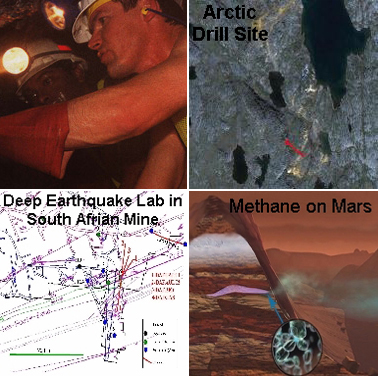Faculty Spotlight for August 2007
Tullis Onstott has been focusing his research for the last 15 years on subsurface microbial life and its implications for life on Mars and the origin of life. This research involves exploration of subsurface microbial ecosystems via mines, drilling, and new underground laboratories, and quantifying its community structure, function, and activity with molecular, isotopic, and geochemical tools.
Astrobiology – As a member of the Indiana-Princeton-Tennessee Astrobiology Institute, his research group is characterizing life that exists deep beneath permafrost deposits in the Canadian Arctic and developing instrumentation for analyzing the isotopic composition of CH4 in the Martian atmosphere, which may have a biological origin.
Classes – With professors from the Astrophysics, Chemistry, and Ecology and Evolutionary Biology departments, Onstott has developed a new sophomore level course, Life in the Universe, which introduces undergraduates to the exciting field of Astrobiology.
Biogeophysics – This new field seeks to understand the relationship between crustal tectonics and subsurface microbial life by collaborating with geophysicists in the construction of an underground laboratory at 3.8 km depth in an active fault zone in South Africa. Earthquakes generate gas and fluid flow, thereby providing nourishment to microorganisms.
Updated 08/03/07
